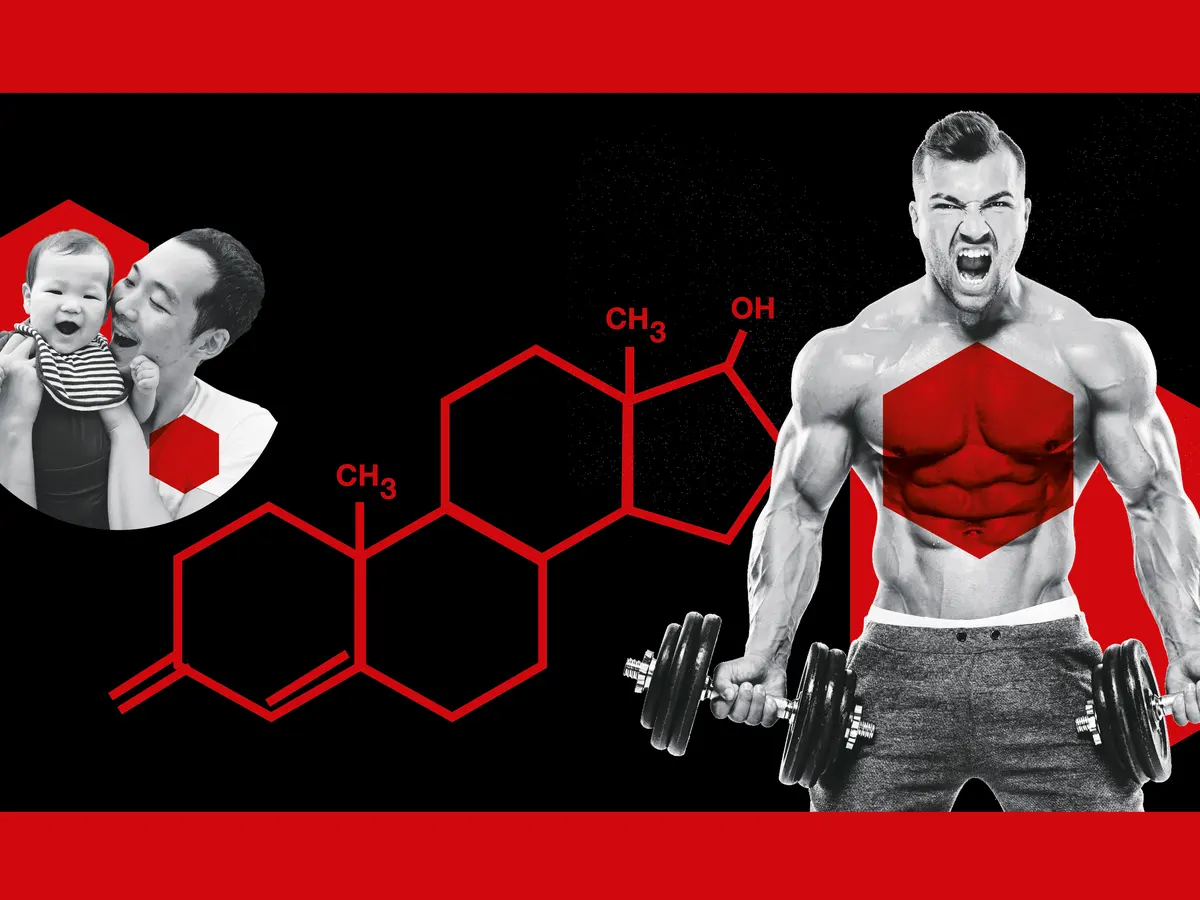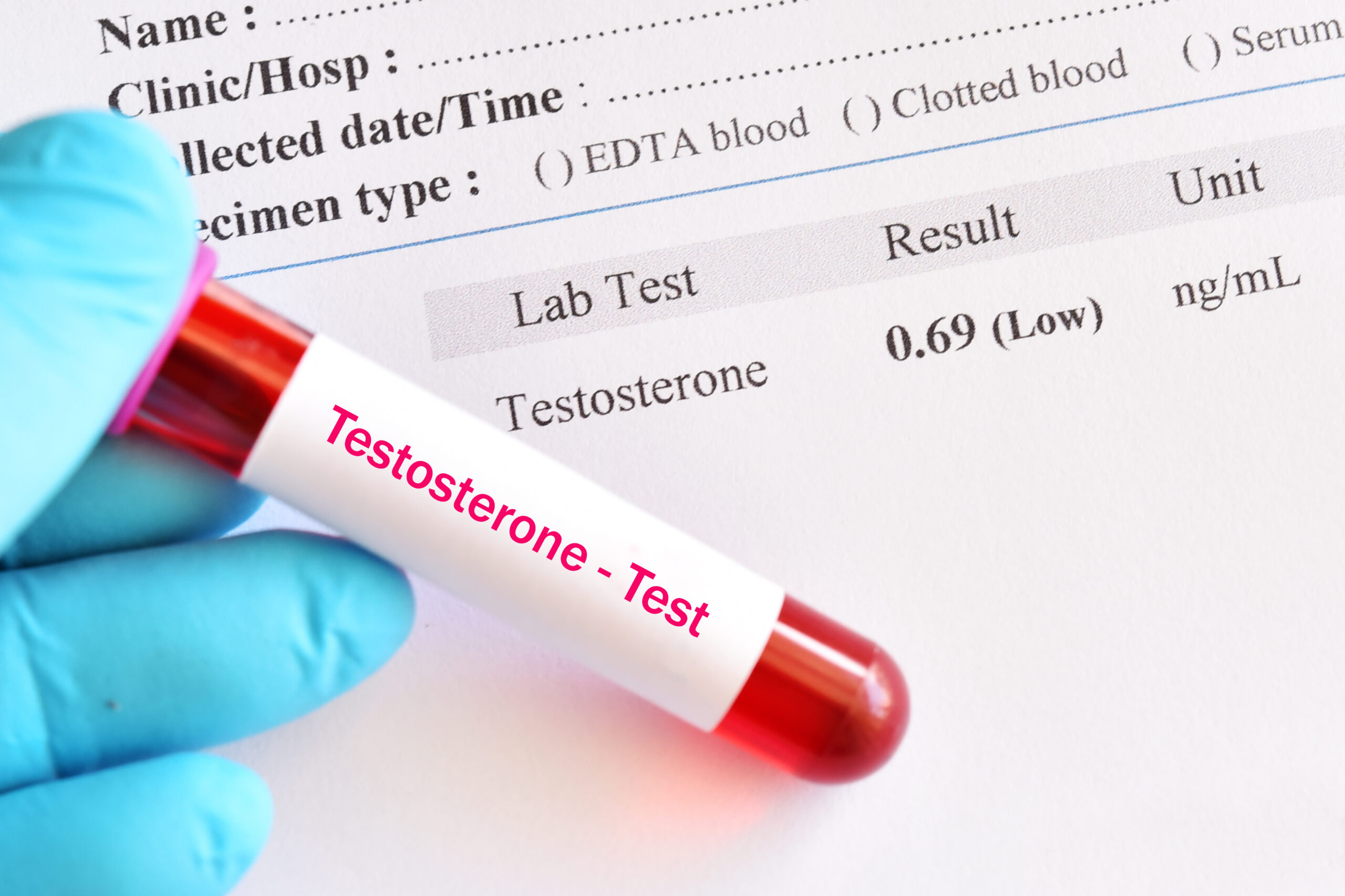By Charalampos Karouzos,
Testosterone, known in the pop-culture as the “masculine hormone,” apart from simply a symbol of strength and brutality plays a vital role in shaping the biological characteristics and well-being of men. Its gradual decline in the modern man however, a phenomenon that has raised concern among scientist, now demands a novel understanding of its biological significance and the social implications on the health of 21st century men. The decline, not simply a medical issue to be pharmacologically treated, is now actively challenging the broader societal ideas about the image and the role of the modern man.
To start the role of testosterone must be explained, testosterone is a steroid hormone predominantly created in the testes but also produced in smaller amounts by the adrenal glands (the natural source of testosterone in women). While commonly associated with male sexual characteristics, testosterone influences various aspects of a man’s life beyond one’s sexuality playing a fundamental role in the development of primary and secondary sexual characteristics during puberty, including the deepening of the voice, facial and body hair growth, and the increase in muscle mass. Beyond physical changes however, testosterone influences a range of psychological and cognitive functions, contributing to assertiveness, self-confidence, and competitiveness while simultaneously regulating mood, and supporting overall well-being. The effects of the hormone are seen more clearly among the male human, as the naturally occurring levels are multiple times higher compared to women, with the first differenced observed at the embryo stage, where the exposure to testosterone drives the development of the fetus towards the male human than developing into a woman.
In recent years however, the decline of testosterone levels in the modern man have alarmed researchers and doctors about the possible ramification on a man’s heath. Although the decline is well demonstrated, it must be underlined that physiologically the levels of testosterone drop with increasing age and since the modern man has a drastically higher life expectancy, the circulating levels of the hormone are lower. However, aging is the physiological aspect of the decline and concern has been raised regarding the various factors that are distant from physiology and overall health. The factors held reliable for the decline include sedentary lifestyle, obesity, stress, environmental pollutants (endocrine disruptors), and certain medical conditions. In fact, environmental pollutants, previously unknown or neglected, found in everyday products, have been linked to hormone imbalances, highlighting the need to regulate their usage.
The impact of declining testosterone levels however is not only connected to abnormal development of the secondary sexual characteristics like facial hair which has minimal implications on one’s physical health, but the decline challenges the fundamental man physiology. Testosterone must be between a normal range to be considered acceptable and men, in a growing number today, need testosterone replacement therapy (TRT), to achieve the desired levels. Lower testosterone levels are linked to reduced fertility, decreased libido, erectile dysfunction, fatigue and cognitive alterations, loss of muscle mass and strength, obesity, osteoporosis, and a higher prevalence of metabolic disorders such as diabetes, all conditions that challenge a human’s health. Furthermore, studies have associated the decline of testosterone with a set of psychological disorders ranging from a man’s overall mood and mental well-being to even contributing to an increased risk of depression or anxiety, a great concern of today.

However, the decline of testosterone in the modern man must not be considered only as a health issue since it has social implications that cannot be overlooked. The cultural and historical perspectives on masculinity, with testosterone the symbol, have an important role in understating how the biological decline affects the cultural norms, the values and the complex relationship shaped under the umbrella of masculinity. Testosterone plays a role in shaping traditional gender roles and behaviors, its influence on traits such as aggression, dominance, and risk-taking behavior has often been associated with the stereotypical image of masculinity while lower levels of testosterone can lead to reduced assertiveness and self-confidence, potentially affecting interactions in both personal and professional contexts. As testosterone levels decrease, it influences aspects of interpersonal relationships and alters the established set of roles found among communities.
As society evolves, there is a growing recognition of the need for more inclusive and diverse understandings of masculinity previously made uniform with aggression and dominance among others. Challenging rigid gender norms allows for a more comprehensive understanding of individual experiences and identities and especially today it is essential to acknowledge that testosterone levels alone do not define one’s masculinity or ability to embody various traits and characteristics.

Understanding that the classic notion that aligned masculinity with testosterone lacks a rational explanation would be an important step for society. However the health consequences of the decline must be addressed by effective measures to constrain the decline. Firstly, lifestyle modifications such as regular physical exercise, maintenance of a healthy weight, managing stress levels, and adopting a balanced diet are well-known methods to positively impact testosterone levels. Additionally, medical interventions such as hormone replacement therapy must be considered in cases where low testosterone significantly affects an individual’s quality of life. Further, it is also worth considering the impact of testosterone in contexts beyond cisgender men as testosterone plays a protagonist role in the development and well-being of transgender men as they undergo hormone replacement therapy as part of their gender-affirming process. Understanding the dual role of testosterone as a biologically active hormone while simultaneously interfering with diverse gender identities contributes actively to a more comprehensive understanding of hormone dynamics and their impact on the health of individuals.
Testosterone, the age-old emblem of masculinity, holds a significant value in the lives of men, influencing physical, psychological, and social aspects. The decline of testosterone in the modern man raises pivotal questions regarding the health consequences of individuals but also the social implications in contemporary society. By recognizing through extensive research, the significance of testosterone and adopting measures to address its decline, we can strive to promote a healthier and more balanced approach to masculinity in the 21st century.
References
-
Hooven, Carole. Testosterone: The Story of the Hormone that Dominates and Divides Us. United Kingdom, Octopus.
-
Testosterone: What it is and how it affects your health. health.harvard.edu. Available here
- Testosterone therapy: Potential benefits and risks as you age. mayoclinic.org. Available here
-
Eisenegger, Christoph; Haushofer, Johannes; Fehr, Ernst (2011). The role of testosterone in socialinteraction. Trends in Cognitive Sciences, 15(6):263-271




